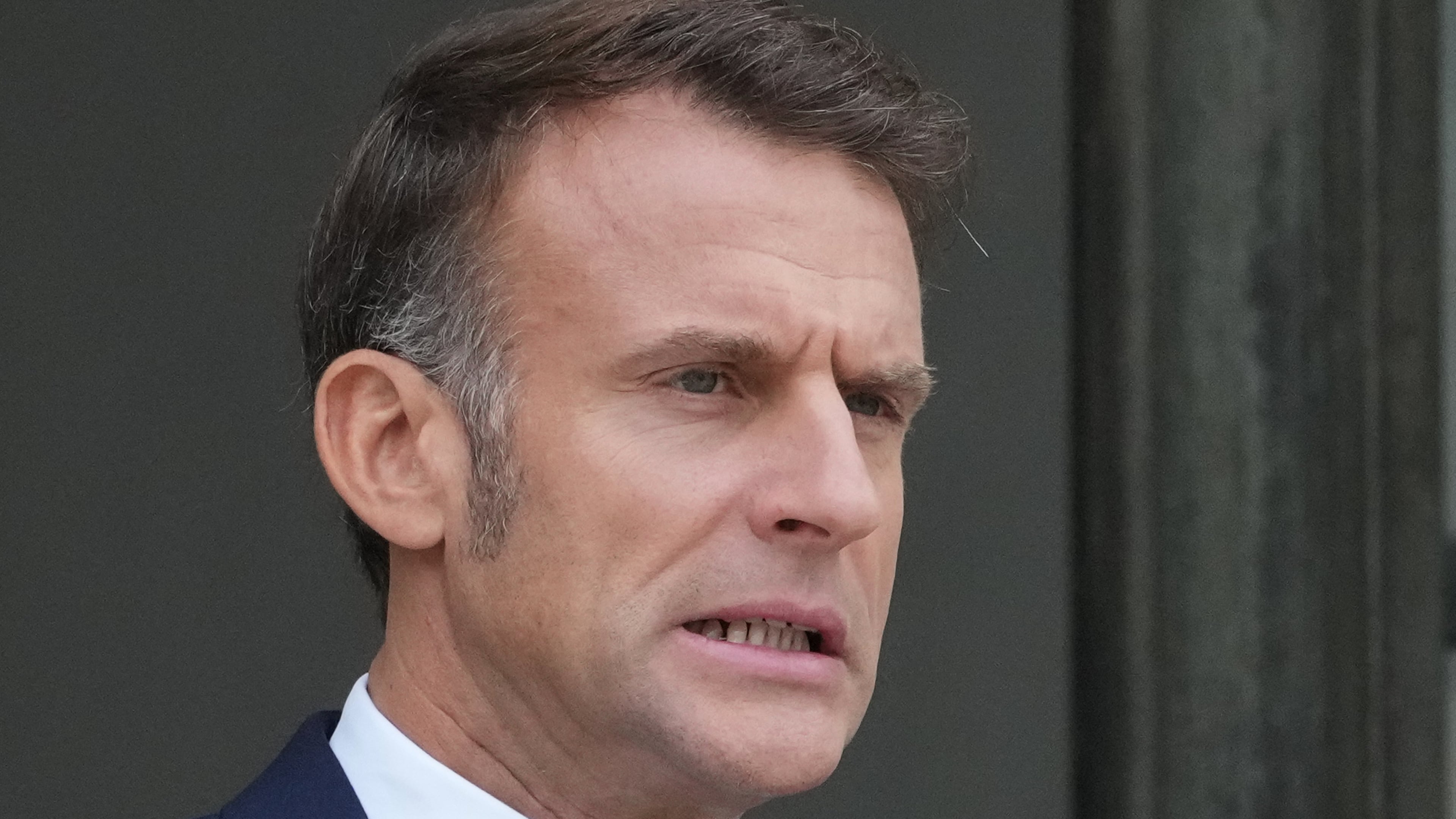France's Macron asks newly resigned Prime Minister Lecornu to try again to form a government

PARIS (AP) — French President Emmanuel Macron on Friday re-appointed Sebastien Lecornu as prime minister, just days after his resignation, asking him to try again to form a government and produce a budget in a bid to end the country's political deadlock.
Lecornu’s re-appointment followed days of intense negotiations and came less than a week after he resigned amid infighting in his freshly named government. France is struggling with mounting economic challenges and ballooning debt, and the political crisis is aggravating its troubles and raising alarm across the European Union.
The appointment is widely seen as Macron's last chance to reinvigorate his second term, which runs until 2027. Lacking a majority in the National Assembly to push through his agenda, Macron faces mounting criticism — including from within his own ranks — and has little room to maneuver.
Macron’s office released a one-sentence statement late Friday night announcing the appointment, one month after the statement issued a month ago when Lecornu was initially named and four days after he resigned.
Lecornu said in a statement on social networks that he accepted the new job offer out of ″duty.″ He said he was given a mission ″to do everything to give France a budget by the end of the year and respond to the daily problems of our compatriots.″
All those who join his new government will have to renounce ambitions to run for president in 2027, Lecornu said, adding that the new Cabinet will ″incarnate renewal and a diversity of skills.″
″We must put an end to this political crisis that exasperates the French, and to this bad instability for France’s image and its interests,'' he wrote.
Lecornu abruptly resigned Monday, only hours after unveiling a new Cabinet that drew opposition from a key coalition partner. The shock resignation prompted calls for Macron to step down or dissolve parliament again, as he did in June 2024. But they remained unanswered, with the president instead announcing on Wednesday that he would name a successor to Lecornu within 48 hours.
Political party leaders met for more than two hours Friday with Macron, at his request. Some cautioned that another prime minister picked from the ranks of Macron's fragile centrist camp would risk being disavowed by Parliament's powerful lower house, prolonging the crisis.
“How can one expect that all this will end well?" said Marine Tondelier, leader of The Ecologists party. “The impression we get is that the more alone he is, the more rigid he becomes.”
Worried investors
Over the past year, Macron’s successive minority governments have collapsed in quick succession, leaving the European Union’s second-largest economy mired in political paralysis as France is faced with a debt crisis. At the end of the first quarter of 2025, France’s public debt stood at 3.346 trillion euros ($3.9 trillion), or 114% of gross domestic product.
France’s poverty rate also reached 15.4% in 2023, its highest level since records began in 1996, according to the latest data available from the national statistics institute.
The economic and political struggles are worrying financial markets, ratings agencies and the European Commission, which has been pushing France to comply with EU rules limiting debt.
The newly reappointed PM faces challenges
The two biggest opposition parties in the National Assembly — the far-right National Rally and the far-left France Unbowed party — weren't invited to the discussions Friday. The National Rally wants Macron to hold fresh legislative elections and France Unbowed wants him to resign.
Lecornu argued earlier this week that Macron’s centrist bloc, its allies, and parts of the opposition could still clump together into a working government. “There’s a majority that can govern,” he said. “I feel that a path is still possible. It is difficult.”
Lecornu will now have to seek compromises to avoid an immediate vote of no confidence and may even be forced to abandon an extremely unpopular pension reform that was one of Macron's signature policies in his second presidential term. Rammed through parliament without a vote in 2023 despite mass protests, it gradually raises the retirement age from 62 to 64. Opposition parties want it to be scrapped.
The political deadlock stems from Macron’s shock decision in June 2024 to dissolve the National Assembly. The snap elections produced a hung parliament, with no bloc able to command a majority in the 577-seat chamber. The gridlock has unnerved investors, infuriated voters, and stalled efforts to curb France’s spiraling deficit and public debt.
Without stable support, Macron’s governments have stumbled from one crisis to the next, collapsing as they sought backing for unpopular spending cuts. Lecornu’s resignation, just 14 hours after announcing his Cabinet, underscored the fragility of the president’s coalition amid deep political and personal rivalries.

